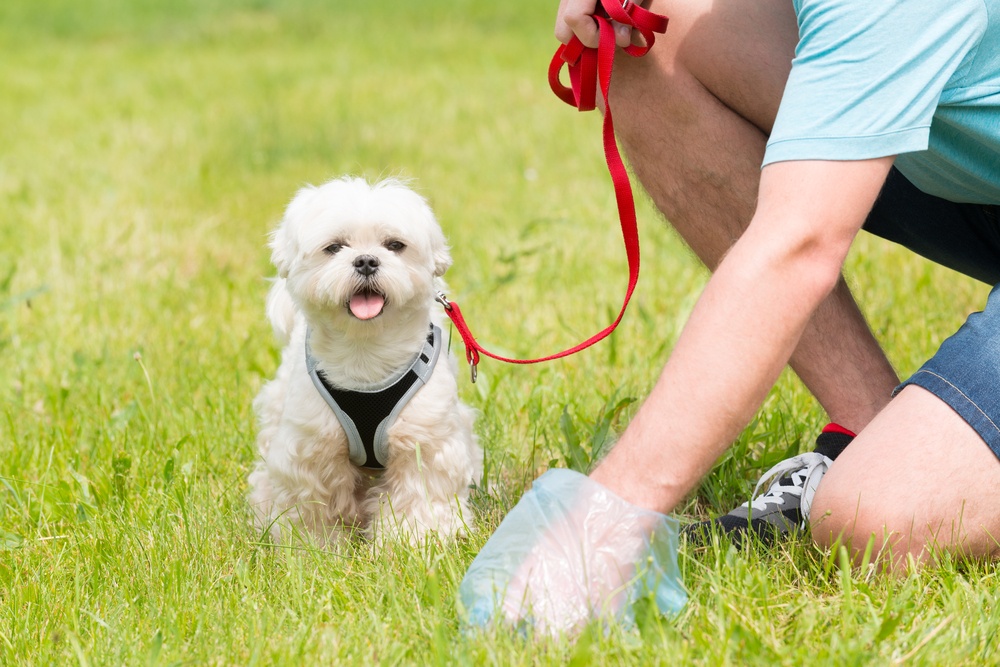Getting a pet is a pretty incredible experience, even when you find yourself constantly conflicted over what’ll keep them in prime health and what’ll warrant a visit to the vet.
We worry about their diets, training, and lifestyle, but we seldom give thought to the waste they excrete. That’s not an aspect of pet-keeping we rejoice over. But as we move to battle drastic climate change, there’s a question that needs some pondering over—How does pet waste affect the environment?
How Does Pet Waste Affect The Environment?
Most of us are aware that waste from animal husbandry contributes significantly to environmental degradation. But how many of us know that pet waste is no different?
Consider these statistics—about 65% of Americans have pets. That’s an astounding 85 million pets. With each dog producing over 200 pounds of waste a year, that is a lot of poop to dispose of safely! But where does it all go, and how does it affect our environment?
How Can Pet Waste Affect Nearby Water Sources?
When people fail to pick up after their pets, their poop gets washed into storm drains. After converting into a pollutant, the pet waste then drains into local water bodies.
As pet poop contains nitrogen and phosphorus, it can deplete oxygen that is crucial to the survival of marine life. That’s not all!Pet waste also contains disease-causing bacteria. It also encourages the growth of harmful algae. This makes the water unlivable and unswimmable. So not only is pet waste toxic to marine life, it can cause serious illness in humans.
Is Pet Waste Harmful to Humans?
Humans are susceptible to certain diseases through pet waste. These diseases, transmitted from one species to the other, are known as zoonoses.
Why is it bad? The gastrointestinal parasites like roundworms and hookworms lay eggs in dog feces. So, when you unknowingly step on the dog poop, it’s not just a nasty cleaning experience. It’s so much more than that.
There’s a strong likelihood of you encountering parasite eggs and, subsequently, larvae. Small children or those caught unaware have an even greater chance of getting diseases from pet poop.
Does that mean we have to give up pet ownership? Of course, not.
Pets are our companions and an indispensable part of our life. Life without them will be dreary, dull, and boring. Instead of steering away from pet ownership in a bid to save the earth, we can opt to move towards safely disposing of your pets’ feces.
What Can You Do To Rectify The Situation?
As cuddly and furry our four-legged friends are, they leave a significant mark on the environment, and not in a good way. So, if you’re wondering, ‘is pet waste dangerous’ the answer to that is a big yes.
Pet waste, plastic toys, and plastic poop bags contribute negatively to the environment. Even pet food plays a major role in climatic changes and greenhouse gas emissions through animal rearing, manufacturing, and supply units, among other things.
Pet waste doesn’t have to be a pressing issue, though. While it can be a significant cause of concern to both human and marine life, there are ways we can tackle the effects it has on the environment and humans.
Dispose Of Your Pets Poop The Green Way
About 2/3rds Of US Households Have Pets. So You Can Imagine The Amount Of Waste We’re Contributing To The Overall Environmental Impact!
While pet waste may not look like a big enough problem, it’s important to remember that the number of households with pets increases every year. Without an effective disposal system in place, this source of pollutants can quickly become a big problem.
Is dog waste a problem? Yes, it is. When pet poop is not properly disposed of, it can contaminate water bodies and, by default, marine life. Pet waste left on the ground has terrible consequences as well. Not only can it take months to break down, but it can also leave parasites and harmful bacteria behind, which will infect other animals and humans. What’s worse is that these parasites and bacteria can linger in the soil for years.
Pet parents can avoid this by considering investing in a sturdy pooper scooper instead of lugging around single-use plastics. Of course, you don’t have to walk around with a scoop of dog poop. Instead, you can dispose of it at the nearest trash can after transferring it to a biodegradable bag. Alternatively, if there are public restrooms nearby, you can flush the poo.
And before you worry, flushing dog waste means it will go straight to a sewage treatment plant, and pathogens in the waste won’t reach water sources.
Change Your Kitty Litter
The clay in your kitty litter is a result of some hardcore mining. To avoid the impact it can have on the planet, opt for eco-friendly alternatives.
As pets gain more importance in American households every passing year, the pet market expands to cater to the rising demand. Chances are, you’ll have more than one option within your budget when you go pet supply hunting.
Purchase kitty litter that has wood chips or sawdust as its main ingredient. You can also make eco-friendly kitty litter with recyclable materials like paper and wood shavings.
Only cat poop is known to contain a parasite called Toxoplasma Gondii, which has proven to be harmful to humans, animals, and birds. And whatever you do, don’t consider flushing your cat’s poop down the toilet—the litter that goes with it will clog your plumbing system. If you are determined to flush cat poop, ensure your municipal treatment plant can handle Toxoplasma Gondii.
Change Your Pet’s Lifestyle
If you don’t have the time or resources to make this change but still want to offset your pet’s carbon footprint, you can consider making some lifestyle changes. Sustainable living has the potential to create a massive difference.
Here’s what you can do.
Introduce Sustainable Meals
Our pet’s meals are something we pay a lot of attention to. We constantly look for better-packaged food alternatives so our four-legged friends can have a better shot at a healthier lifestyle. That’s great. But have you looked at the packaging that holds their food intact?
Pet food has problematic packaging, a lot of which is beyond recycling. When you consider the amount of pet food purchased every year, you’ll understand why pet food is one of the major contributors to the world’s waste. So, before you purchase pet food, check what its packaging is made of.
Additionally, you should familiarize yourself with the brand you’re purchasing the pet food from. Do in-depth research to ensure they follow sustainable business practices and are eco-friendly. It’s important to note that pet food from environmentally-conscious brands will be pricier comparatively.
Monitor Pet Food Ingredients
No matter what your favorite pet influencer says, regularly giving your pet human food (aka spicy and oil-filled) can do them more harm than good. Human food is not a superfood, nor does it have any element of environmental consciousness attached to it, so steer clear of feeding your pet scraps from your table. There are so many human foods that dogs can’t eat.
If you have trouble finding clean brands within your budget, consider making the pet food yourself. The internet is a storehouse of tried-and-tested pet-friendly recipes—some of which are as simple as steam a protein source with vegetables and serve—so go ahead and experiment.
Spay Or Neuter Your Pet
One way to promote sustainable living and make the earth a greener place is to maintain population balance. Overpopulation has numerous downsides, of which an adverse effect on the ecosystem is the most notable one.
As the demand for designer dogs increases, breeders resort to questionable practices. Avoid the murkier side of unethical breeding and adopt rescues instead. Spaying or neutering pets also helps as it means fewer puppies of uncertain parentage will end up abandoned or at rescue shelters.
Pet Waste Composting
Dog waste composting is an inexpensive and effective way of reducing the impact poop has on the environment. The main idea is to destroy the pathogens found in dog feces.
Environmental Benefits of Pet Waste Composting
Composting dog waste has a multitude of benefits associated with it. Prime among them are:
- Removes dog waste from the environment where it can prove to be toxic. Think water streams and landfills.
- Reduces the volume of dog waste by a whopping 50%.
- When done right, it destroys pathogens and paves the way for safe soil amendment.
- Cuts back time taken to transport pet waste to a disposal facility. This saves time, energy, and money.
- It produces quality soil additives, which improve the physical condition and the fertility of the soil.
- The composted material can be used as mulch material, which can be used as a nutrient that can improve your yard and trees. But, remember, don’t use it on the plants that you intend to consume.
Read this article for a step-by-step guide to composting pet waste.
Conclusion
So that’s everything we’ve researched on “How does pet waste affect the environment?” We hope the information gives you ideas to help lessen your pet’s carbon footprint. Even if you don’t have the resources required to bring in the change, you can always make conscious choices.
Remember, a little change goes a long way.


